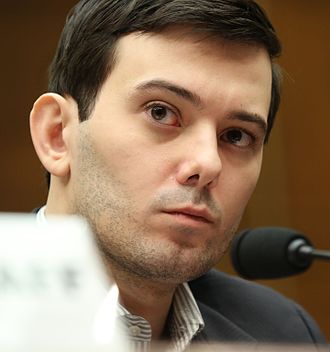Scammer Martin Shkreli
Details |
|
| Name: | Martin Shkreli |
| Other Name: | |
| Born: | 1983 |
| whether Dead or Alive: | |
| Age: | 41 |
| Country: | Brooklyn, New York, U.S. |
| Occupation: | Investor, former hedge fund manager and biotech founder |
| Criminal / Fraud / Scam Charges: | Null |
| Criminal / Fraud / Scam Penalty: | 7 years in prison (paroled after 6 years and 5 months) |
| Known For: | Turing Pharmaceuticals, Retrophin, Daraprim price hike |
Description :
Martin Shkreli
Martin Shkreli, often dubbed "Pharma Bro," became one of the most infamous figures in the pharmaceutical industry and the broader financial world due to his unapologetic and controversial business practices. Born in 1983, Shkreli rose to prominence as a hedge fund manager and pharmaceutical executive, but it was his actions as CEO of Turing Pharmaceuticals that thrust him into the spotlight and earned him widespread notoriety.
Shkreli's most infamous act came in 2015 when Turing Pharmaceuticals acquired the rights to Daraprim, a life-saving drug used to treat parasitic infections, and promptly raised its price by over 5,000%, from $13.50 to $750 per pill. The move sparked outrage among healthcare professionals, patient advocacy groups, and the general public, who condemned Shkreli for price gouging and putting profits over the well-being of patients.
While the Daraprim price hike made Shkreli a household name, it was his subsequent legal troubles that would cement his reputation as a symbol of corporate greed and hubris. In 2017, he was convicted on multiple counts of securities fraud and conspiracy related to his time as a hedge fund manager and CEO of Retrophin, another pharmaceutical company he founded.
The charges against Shkreli stemmed from allegations that he had engaged in a "Ponzi-like" scheme to defraud investors in his hedge funds and illegally manipulate the stock prices of Retrophin, among other securities violations. Prosecutors accused him of using investor funds to pay off debts and cover personal expenses, while also making false statements to inflate the value of his investments.
Throughout his trial and subsequent legal proceedings, Shkreli maintained a defiant and unrepentant attitude, frequently using social media and public appearances to mock his critics and proclaim his innocence. His brash demeanor and cavalier attitude only served to further inflame public opinion against him, solidifying his reputation as a villainous figure in the eyes of many.
In March 2018, Shkreli was sentenced to seven years in prison for securities fraud and conspiracy, effectively ending his career as a pharmaceutical executive and hedge fund manager. Despite his incarceration, he continued to attract media attention for his antics behind bars, including attempts to conduct business from prison and a widely-publicized dispute with the Wu-Tang Clan over the ownership of a rare album he had purchased for $2 million.
The case of Martin Shkreli sparked widespread debate about the ethics of the pharmaceutical industry, corporate governance, and the role of greed in the pursuit of profit. While some saw him as a ruthless opportunist who exploited the vulnerabilities of the healthcare system for personal gain, others viewed him as a scapegoat for deeper systemic issues within the pharmaceutical industry and financial markets.
Regardless of one's perspective, the saga of Martin Shkreli serves as a cautionary tale about the dangers of unchecked ambition and the consequences of prioritizing profit over ethics. His rise and fall underscore the need for greater accountability and transparency in both the pharmaceutical industry and the financial sector, as well as the importance of holding corporate executives accountable for their actions.






